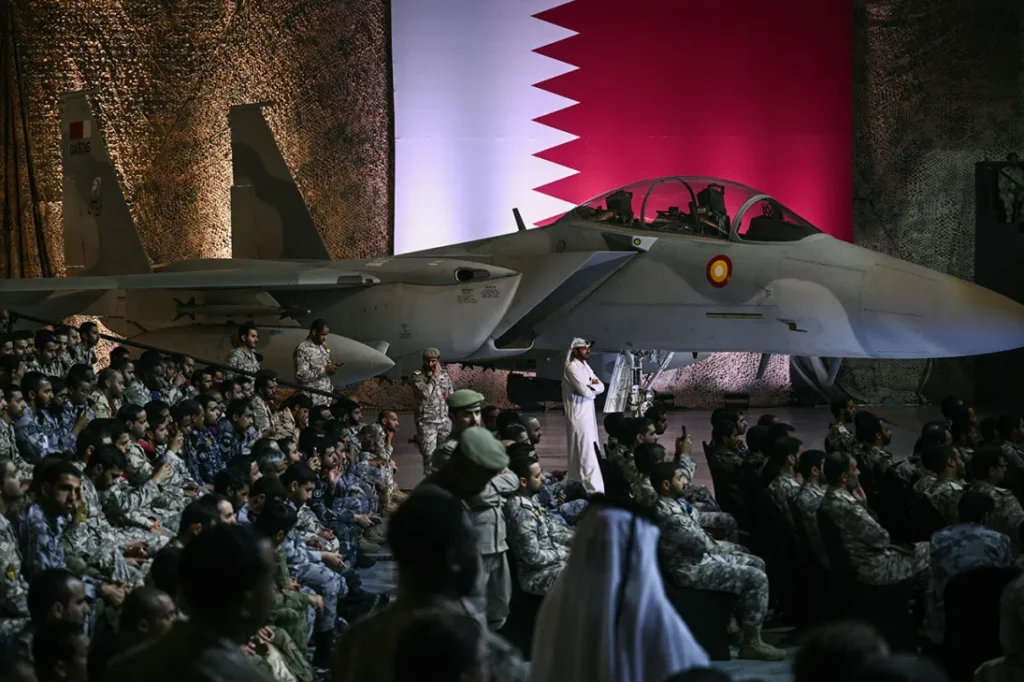Strategic Calm Amid Regional Storms
As Israeli strikes targeted Iranian military sites and infrastructure earlier this month, the conflict threatened to plunge the Gulf into chaos. Israel’s campaign—notably the strike on June 13–14 that focused on Iranian nuclear and missile facilities—sparked global concern. Oil prices surged, air travel was disrupted, and regional flight paths were rerouted. In this climate, Gulf states—led by the UAE, Oman, and Saudi Arabia—declared calls for restraint. But behind the diplomatic facade, strategic self-preservation was in motion .
A Rare Bridge Between Adversaries
The UAE stands as one of the few nations maintaining diplomatic ties with both Jerusalem and Tehran, positioning itself uniquely to influence outcomes. While no formal mediation is public, sources indicate that Abu Dhabi is discreetly maintaining backchannels with both capitals. During the recent Israel–Hamas conflict, when other dialogues were frozen, the UAE quietly sustained contact—proving its role goes far beyond ceremonial diplomacy.
Avoiding Escalation, Preserving Prosperity
Geopolitics aside, economic factors loom large. Analysts warn that perceptions of instability can spook investors, disrupt currency valuations, and reverberate across aviation and real estate sectors. For the UAE, whose prosperity hinges on global confidence—from Emirates flights to sovereign wealth investments—peace isn’t just political, it’s economic.

Moreover, the Gulf Alarm Bell has been pulling the right seats: the US military presence across Qatar and UAE, along with tens of thousands of foreign personnel, means any spillover could be disastrous.

The Abraham Accords: A Diplomatic Test
Launched in 2020, the Abraham Accords brought transformative partnerships—flights, commerce, tech sharing—but now face their truest test: quelling war before it starts. The UAE’s diplomacy channels have to function not just in business but in crisis. If they falter, the whole structure is at risk.
Gulf Alliance in De‑Escalation
It’s not just the UAE acting. Oman has similarly condemned the strikes, while Saudi Arabia, which normalized with Tehran in 2023, has cooled its tone toward Israel and highlighted restraint . Oman remains woven into nuclear negotiation channels; if those weaken, the UAE is next in line.
This shared Gulf diplomacy isn’t symbolic. It’s driven by hard calculus: avoiding retaliation, preventing proxy flare-ups, and keeping markets calm. With the Red Sea choke points, Houthi actors in Yemen, and Hezbollah potentially dredged into escalations—any misstep could destabilize centuries-old trade arteries.
Energy, Markets, and Military Calculus
The conflict’s energy impacts are clear: Israeli strikes on Iranian oil and gas infrastructure (notably south Pars and Shahran) disrupted supplies and pushed Brent crude up ~5–11% . Flight disruptions followed: Middle Eastern airspace closures affected global carriers like Air India, Lufthansa, Emirates, and Etihad .
Military strategy is evolving too. Gulf states—from Abu Dhabi to Riyadh—see value in keeping lines open. Whether it’s hosting discreet backchannel talks or serving as messaging intermediaries, they are leveraging soft power to offset hard-fire risks.
What’s Next: Quiet Talks, High Stakes
Expect more of Abu Dhabi’s diplomatic dance: quiet outreach, discreet messaging, unannounced envoys. If history is any guide, the UAE will step up as messenger and monitor—urging calm on both ends. Should Iran refuse to dial back, Gulf mediation may firm up; if Israel escalates further, the region could rally against it—even among traditional allies.

A Moment That Matters
Ultimately, the gulf between war and peace might hinge on Gulf capitals—not global capitals. The UAE, Oman, and Saudi Arabia aren’t just caught in the middle—they’re shaping how the fallout unfolds. Their current stance—pragmatic, cautious, leveraged—is more than diplomacy. It’s a survival strategy for the Middle East’s modern economic lifeline.
Do follow UAE Stories on Instagram.













